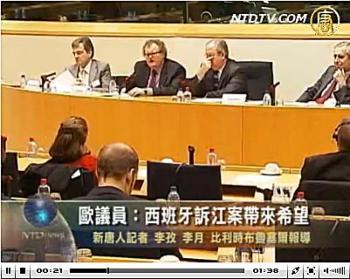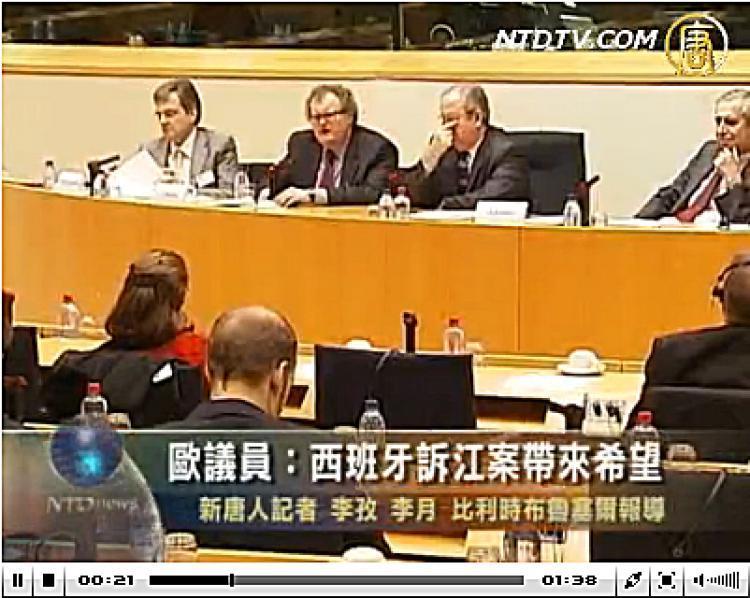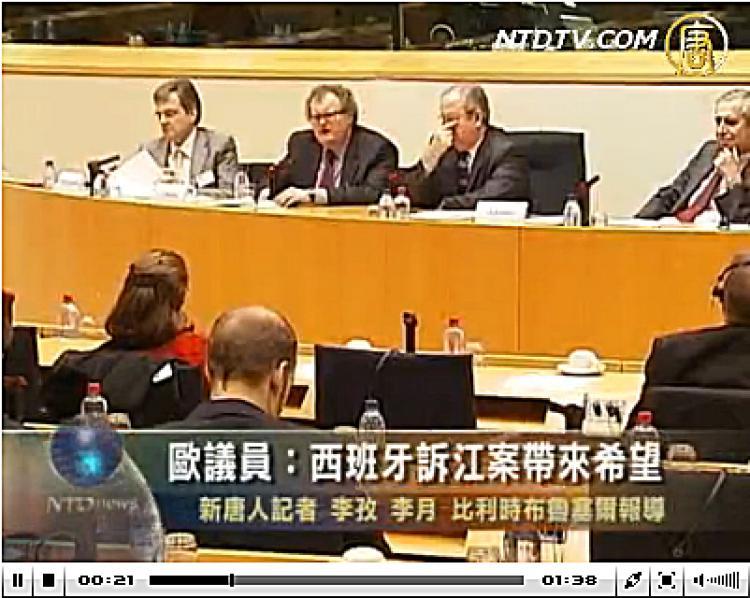Justice Lost in China, Found in Argentina
On Dec. 17, 2009, Judge Octavio Aráoz de Lamadrid made a landmark decision.

EU Parliament members support the indictment of five CCP officials for genocide and torture aimed at Falun Gong practitioners in China. NTD News
|Updated:






